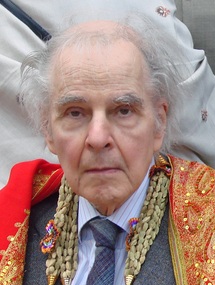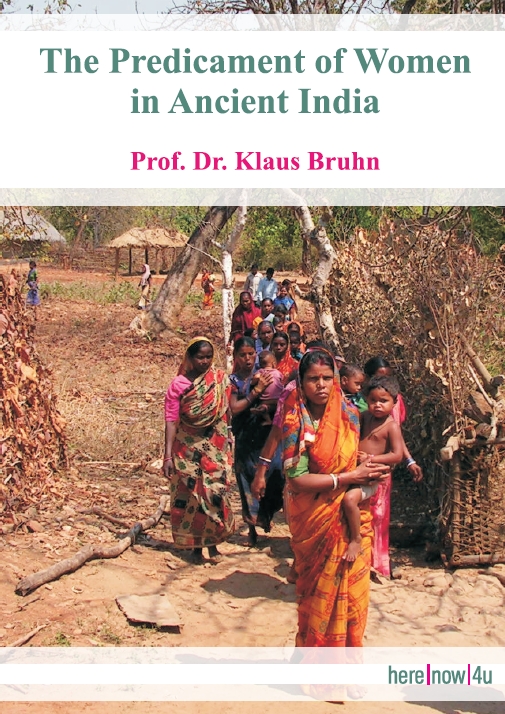We are following VAN BUITENEN (760-778 translation of the critical edition; 760-761: abstract). See also JAMISON 245-247.
A king named Ashvapati had a daughter, Savitri, as his only child, and even this daughter was conceived only through the help of a goddess. When she had reached the marriageable age (eighteen years according to a later manuscript), Savitri had the radiance of a goddess, an internal brightness which frightened the wooers away -- rather then attracting them. The king faced the problem shared by most fathers of daughters: how to marry her off. Unsuccessful himself, he asked his daughter to find herself a worthy husband (Svayamvara marriage, § 3) and to inform him, so that he might give his consent. The king himself quotes a verse from the Manu Smriti (9.4) which enumerates the established duties towards a daughter:
A father who does not marry off his daughter in time, a husband who does not have intercourse with his wife at the right period, a son who does not protect his widowed mother -- all these are blameable.
In search of a suitable husband, Savitri perambulates, accompanied by an adequate escort, the tapo-vanas (groves with ashramas or hermitages). After her return, she tells her story before the king (Ashvapati is accompanied by Narada, the famous sage). There is a dispossessed king (Dyumatsena) who lives with his family in the forest, blind and now an ascetic. His son Satyavan was born in the paternal residence but brought up in the forest. On account of his noble qualities Savitri wants to marry him. The sage Narada now prophecies that Satyavan will die after the lapse of a year. Satyavan is endowed with all conceivable virtues, imminent death being his only misfortune. But Savitri is adamant. The king gives his consent.
Ashvapati goes with his daughter to the ashrama of the blind Dyumatsena. Dyumatsena should accept Savitri as his daughter-in-law. Dyumatsena warns Ashvapati that his daughter will not be able to endure the hardships of life in the forest (frequent topic). But Ashvapati does not change his mind and gives Dyumatsena, who now agrees, his daughter. The marriage (Savitri and Satyavan) takes place; Dyumatsena receives an adequate dowry from Ashvapati, and Ashvapati returns.
Savitri never forgets the prophecy of the sage. She counts the days allocated by the prophecy. Three days before the impending death of her husband she stands motionless without a break. Nobody knows her design. On the fourth day, early in the morning of the expected last day of Satyavan's life, she finishes her penance and performs the morning rites. She greets the ascetics and her parents-in-law, and the ascetics "pronounced blessings for her never to be widowed" (767). The parents-in-law now ask Savitri to break her fast and to eat, but she will not eat before sun-set. Meanwhile Satyavan starts for the forest to bring fruit and fuel for the family. Husband and parents-in-law give Savitri their permission to go also into the woods. Both set out on their expedition. But when Satyavan is splitting wood he does not feel well and faints away. Savitri sits down on the ground and puts his head on her lap. The very moment of his death is approaching, and in fact the God of Death (Yama) appears and looks down on Satyavan. Savitri recognizes him as a god and asks: "Who are you, what is your design?". He is Yama and has come to fetch Satyavan. With a noose Yama draws the soul (described as a tiny man) out of Satyavan. Satyavan dies. But Savitri follows Yama who was within an ace of carrying Satyavan's soul away for good.
Yama asks Savitri to go home. But Savitri does not go. She explains to Yama the duty of a wife: "I too must go where my husband is led, or goes by himself..." Yama is pleased and grants her a boon, a boon except the life of her husband. She asks Yama to grant her father-in-law restoration of his eyesight.
Five times does Yama ask Savitri to return, five times she puzzles him by her wisdom, five times he grants a boon, five times she expresses a wish: The eyesight of Dyumatsena may be restored (supra); Dyumatsena may regain his kingdom; sonless Ashvapati may father hundred sons; hundred sons may be born from her womb to Satyavan; and Satyavan shall live. The boons one to four had been granted on condition that Savitri did not choose the life of her husband, but the fifth and last boon was granted without condition. Perhaps Yama was literally forced to release Satyavan, as Savitri says: "You have given the boon that a hundred sons will be born to me, yet you take my man. I choose the boon that Satyavan live! Your very own word shall now come true!" Yama now loosens his nooses [no details] and returns to the realm of the dead.
Savitri retreats to her husband's corpse. Comforted by Savitri, Satyavan returns to consciousness: "I lost consciousness when I fell asleep in your embrace. Then I saw a terrible darkness and a dreadful person. Tell me if you know whether it was a dream I saw, or was it real?" Savitri does not give any answer. She wants to spend the approaching night with her husband in the forest, but Satyavan is afraid his parents might be worried, extremely worried, if son and daughter-in-law do not return in time. So Satyavan and Savitri hasten on to the hermitage.
At the crucial time Dyumatsena regains his eyesight. But the happy event is overshadowed by the deep concern for the young people, in the first place concern on the part of Dyumatsena and his wife: "Ah son, ah good bride, where are you, where are you?" But also concern on the part of the ascetics staying in the ashrama. Eventually Satyavan and Savitri appear, and the curiosity is immense. What happened that the couple returns only in the dead of night? Savitri explains everything, starting with Narada's prophecy and ending with the happy return. She is praised by the assembled seers.
On the next morning Dyumatsena's erstwhile ministers come from the king's land. They inform the king and all those present that the usurper and his followers have been killed by his own minister. The usurper's army has fled. The subjects are now keen to reinstall the old king to his throne. Accordingly, the royal family leaves the ashrama and returns to the capital. Dyumatsena is consecrated anew, and Satyavan becomes crown prince. In the course of time, Savitri gives birth to a hundred sons, and Ashvapati fathers also a hundred sons, brothers of Savitri.
The components of the story:
The marriage by Svayamvara is practised, although the term svayamvara (§ 3) does not occur and although female independence is limited. The father sends Savitri out in search of a husband, but on her way she is accompanied by ministers, and later on she has to persuade her father to permit her marriage with Satyavan. All her activities are centred on one person, the husband-to-be; in the crisis, Savitri comes to his rescue. All the time Savitri is a model of female devotion and submission.
Ashvapati has asked the goddess for sons, but is happy to father a daughter (as promised by a goddess). It is in fact the daughter who helps him to sons (the sons are only mentioned). The verse, supra, about the duties of father, husband, and son (towards daughter, wife and mother) mentions the traditional duties within the family.
The generous Yama does not realize that Savitri will become a widow if he does not release Satyavan. This point is not mentioned by the narrator. Five wishes: as mentioned by Savitri the fifth wish is actually implied by the fourth wish.
One cannot imagine that Satyavan will marry a second and a third wife later on (his father-in-law had of course several wives). In fact, the ideal hero is sometimes monogamous even though monogamy is nowhere prescribed; there seems to be an undercurrent of monogamy (combined with inner-worldly asceticism?). Cf. Rama in the Ramayana.
Motifs of the story: the god of death, devotion to the husband, daughter-in-law and parents-in-law, Smart Woman and Feckless Man (JAMISON 15), dowry, colony of ascetics in the forest.
 Prof. Dr. Klaus Bruhn
Prof. Dr. Klaus Bruhn
 Title Photo Background:
Title Photo Background: